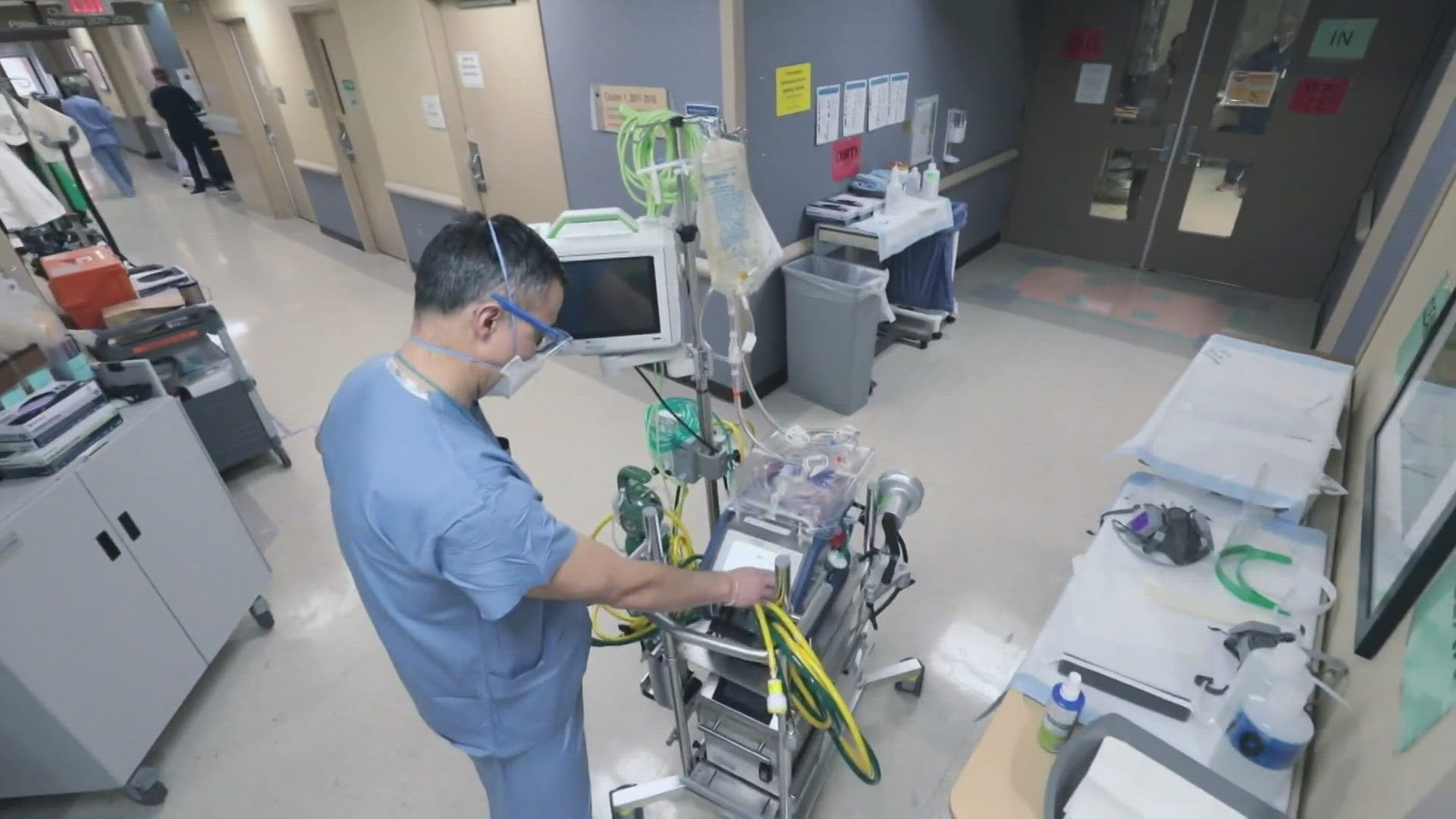OLYMPIA, Wash. — A pair of bills passed in the state Senate geared at addressing the statewide nursing shortage, alleviating individual workloads and giving nurses more autonomy. Those bills 5236 and 5582, now move on to the House.
Senate Bill 5236
Senate Bill 5236 (SB 5236) passed on Monday and heads to the House for approval. The legislation has three major parts: requiring hospitals to create staffing plans with input from a committee made up of nurses and administrators; reinforcing a law regarding meals and breaks; and giving the Department of Labor and Industries a greater role in investigating complaints alongside the Department of Health.
The initial version of the bill mandated staff-to-patient ratios, which was a point of concern for the Washington State Hospital Association (WSHA), which said in February it strongly opposed the proposal.
However, unions and the hospital association reached a compromise in late February on the language of the bill. The final bill passed with a bipartisan vote of 35-13.
In February, dozens of nurses with the WSNA lobbied lawmakers in Olympia to pass SB 5236.
Erin Allison, a registered nurse for eight years, attended the lobbying session on Feb. 2. She said the last three years have been a rollercoaster of emotions, mainly due to the COVID-19 pandemic.
“I felt very appreciated," Allison said. "We got lots of meals delivered to the hospital. Lots of thanks from the community, staying home. It was definitely great at the beginning as far as support. Now, it’s a little different. Now, it’s not real. It’s not serious enough. Our volumes are back up so we’re overcrowded. It’s very difficult to have people keep their masks on in the hospital.”
Allison said she's pushing for this bill with the best interests of her patients in mind.
“I just want them to know the reason we’re doing all this is so that we can better take care of them as a patient in their community," Allison said. "Right now, if they would go to the hospital, they’d see overworked and burned-out nurses. We want to provide the best care that we can, but we have the odds stacked against us right now.”
Editor's note: This story has been updated to reflect changes to the final version of SB 5236 that passed on Tuesday.
Senate Bill 5582
Senate Bill 5582 (SB 5582) was passed unanimously in the state Senate on Monday and heads to the House of Representatives for approval. The bipartisan bill hopes to address the mounting nursing shortage statewide by expanding educational opportunities and reducing barriers.
The proposal would create a pilot project that allows high-school students in training to become certified nursing assistants in understaffed rural hospitals.
Sen. Jeff Holy sponsored SB 5582, saying nursing is the most in-demand occupation in Washington state.
"Our nursing shortage could have a negative impact on our state’s healthcare system," Holy said. "The nurse shortage is a problem not only for hospitals but also nursing homes and other long-term care facilities. This bill is a good way to encourage more people to become registered nurses and licensed practical nurses so we can address this important need.”
SB 5582 would direct the State Board for Community and Technical Colleges to develop a plan to train more nurses in the next four years. The legislation indicates that the plan must prioritize expanding or creating programs that increase capacity to train nurses at the Bachelor of Nursing level, expand training opportunities for rural and underserved students, and partner with public four-year universities.
Holy’s proposal includes a pilot project that allows high-school students in training to become certified nursing assistants in understaffed rural hospitals.
“The nursing shortage is especially being felt in rural communities in our state,” Holy said. "The lack of nurses in rural hospitals is forcing patients to drive long distances to see a nurse and receive treatment. If this bill becomes law, it can help ensure there will be enough nurses in rural hospitals.”

